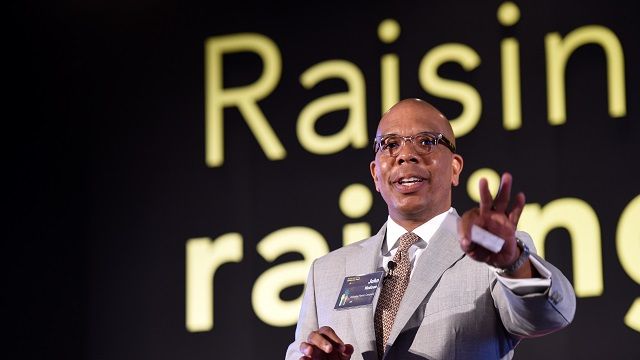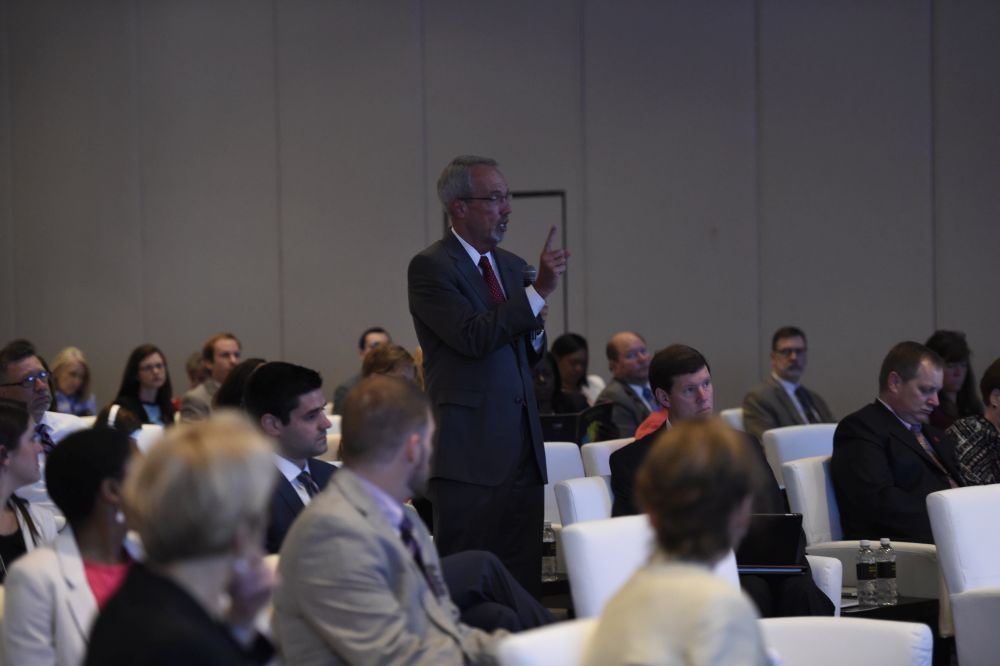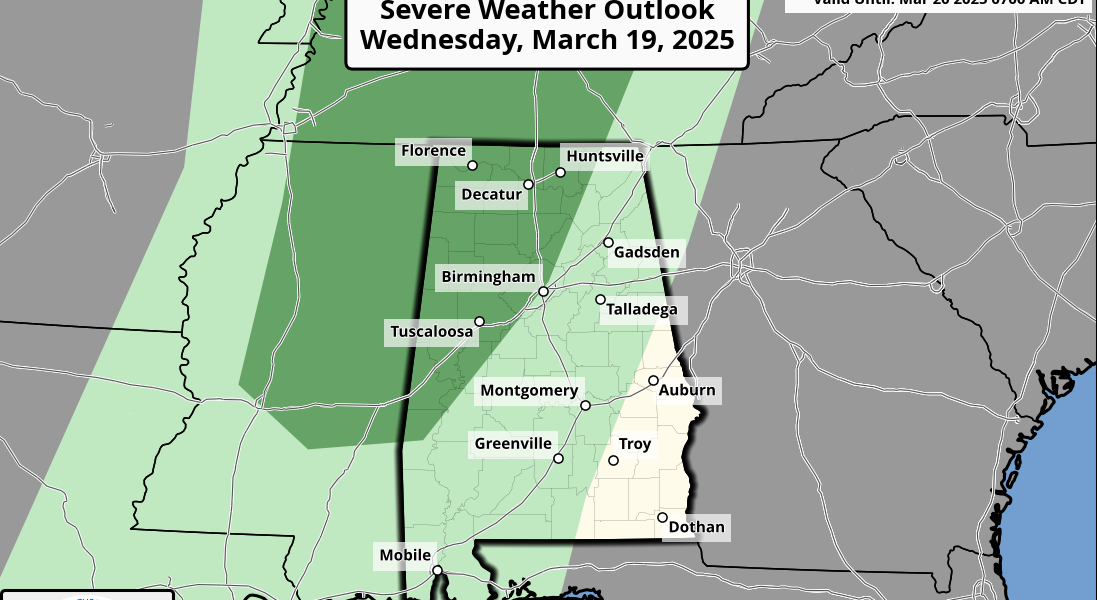Brighter Minds: “Raising the bar by raising your hand”

ABOVE: John Hudson, vice president of Public Relations and president of the Alabama Power Foundation, led a discussion about education at the Brighter Minds education summit. (Wynter Byrd/Alabama NewsCenter)
“Education is the key to opening every door,” said Margaret Morton, executive director at Sylacauga Alliance for Family Enhancement, to more than 100 educators, community partners and government leaders at the second annual Brighter Minds education summit hosted by Alabama Power.
The summit theme “Raising the bar by raising your hand” celebrated the accomplishments of education partners and grant recipients while challenging attendees to have conversations, think collaboratively and work together on how to continue improving education.
Brighter Minds from Alabama NewsCenter on Vimeo.

Alabama Power Executive Vice President Zeke Smith at the Brighter Minds education summit. (Wynter Byrd/Alabama NewsCenter)
Alabama Power Executive Vice President Zeke Smith said that in 2014, the Alabama Power Foundation gave $3.2 million to boost education in Alabama through:
- 15 grants for new teachers
- 14 Pre-K classrooms grants
- 36 grants to support high school sports through Power 2 Play
- 25 environmental education and outdoor classroom grants
- Scholarships supporting science, technology, engineering and math (STEM) at colleges and universities.
John Hudson, vice president of Public Relations and president of the Alabama Power Foundation, led a discussion about education, citing key statistics and inviting experts to weigh in on the findings.
Community partners including Allison Muhlendorf, executive director of the Alabama School Readiness Alliance, talked about the importance of pre-K education and barriers facing families. Kristina Scott, executive director of Alabama Possible, said 27 percent of Alabama children live in poverty, which impacts their education as well as the state economy.
Alabama State Superintendent of Education Dr. Tommy Bice shared what the state is doing to ensure students graduate prepared for college and their careers. Jared White, education policy adviser for Gov. Robert Bentley, discussed how businesses can support educators in this endeavor.
“Education and industry are not mutually exclusive,” said White. “The business community can help shape education in our state.”
Chris McCauley of Markstein Strategic Communications in Birmingham facilitated a panel discussion assessing education needs and ideas for the future. The four panelists brought a diverse range of expertise and backgrounds to the conversation and included Ellen Abell, associate professor in the College of Human Sciences at Auburn University; Dr. Philip Cleveland, director of the state Office of Career and Technical Education/Workforce Development; Mark Coleman, district technology instructor for Montgomery Public Schools; and Morton.
Cleveland offered insight about how workforce development is defined across the state.
“Workforce development encompasses everything in education,” Cleveland said. “In the end, every student will need a job, and both students and parents need to be informed about these opportunities.”

Alabama State Superintendent of Education Dr. Tommy Bice. (Wynter Byrd/Alabama NewsCenter)
When discussing STEM and development for the future workforce, Abell’s background in early childhood education provided an interesting perspective.
“The foundation for workforce development skills is laid in the first three years of life, out of interactions children have with those they are dependable on. Brain development is essential for educational success and economic prosperity,” said Abell.
The panel discussion continued around postsecondary education.
“As the job market changes, so does our approach to postsecondary education,” said Coleman.
“We need to take a look at postsecondary education as an approach to lifelong learning. If a parent is educated, the outlook for a child to succeed is good. Postsecondary education is a pathway to prosperity and that’s true for the adult population as well,” added Morton.
The panel discussed the collective approach of the three tenants of Brighter Minds: early childhood education, workforce development and environmental education.
Cleveland said the state is looking for innovative ways to ensure students are better prepared. “Interagency meetings have enabled the state to collaborate and stretch funds farther. We want to bring education alive and connect the dots for our students. Why not learn geometry skills in a carpentry class?”
“We need to know our students better,” said Coleman. “Students have passions that lead to viable career paths. We need to engage with our students and facilitate how they can turn these passions into a career. We need to speak with them about more than the answers to test questions.”
Following the panel discussion, Alabama Power President, Chairman and CEO Mark Crosswhite introduced the keynote speaker, Dr. Eric Motley, vice president of the Aspen Institute and executive director of National Programs. Motely shared the inspiring story of his education and how the community supported his endeavors from an early age. Motley went on to Samford University and the University of St Andrews in Scotland. For more of his story, click here.
For more information about Brighter Minds visit www.powerofgood.com





